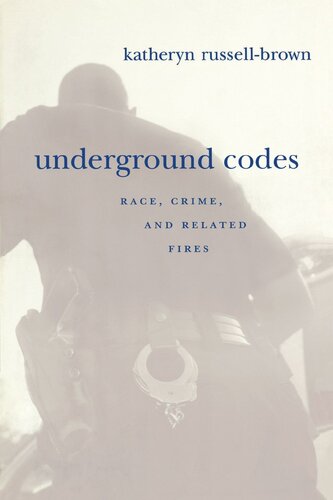

Most ebook files are in PDF format, so you can easily read them using various software such as Foxit Reader or directly on the Google Chrome browser.
Some ebook files are released by publishers in other formats such as .awz, .mobi, .epub, .fb2, etc. You may need to install specific software to read these formats on mobile/PC, such as Calibre.
Please read the tutorial at this link: https://ebookbell.com/faq
We offer FREE conversion to the popular formats you request; however, this may take some time. Therefore, right after payment, please email us, and we will try to provide the service as quickly as possible.
For some exceptional file formats or broken links (if any), please refrain from opening any disputes. Instead, email us first, and we will try to assist within a maximum of 6 hours.
EbookBell Team

4.7
76 reviewsAn active sociologist questions deeply seeded racism and codes that influence the US law enforcement.
Winner of a 2005 Gustavus Myers Outstanding Book Award (Honorable Mention
Americans fear crime, are rattled by race and avoid honest discussions of both. Anxiety, denial, miscommunication, and ignorance abound. Imaginary connections between minorities and crime become real, self-fulfilling prophecies and authentic links to race, class, gender and crime go unexplored. Katheryn Russell-Brown, author of the highly acclaimed The Color of Crime, makes her way through this intellectual minefield, determined to shed light on the most persistent and perplexing domestic policy issues.
The author tackles a range of race and crime issues. From outdated research methods that perpetuate stereotypes about African Americans, women, and crime to the over hyped discourse about gangsta rap and law breaking, Russell-Brown challenges the conventional wisdom of criminology. Underground Codes delves into understudied topics such as victimization rates for Native Americansamong the highest of any racial groupand how racial profiling affects the day-to-day lives of people of color.
Innovative, well-researched and meticulously documented, Underground Codes makes a case for greater public involvement in the debate over law enforcementand our own languagethat must be heard if we are to begin to have a productive national conversation about crime and race.